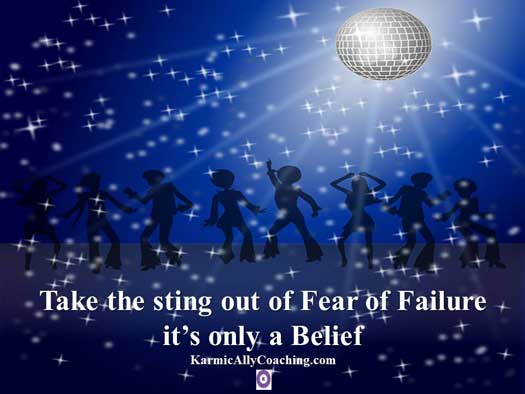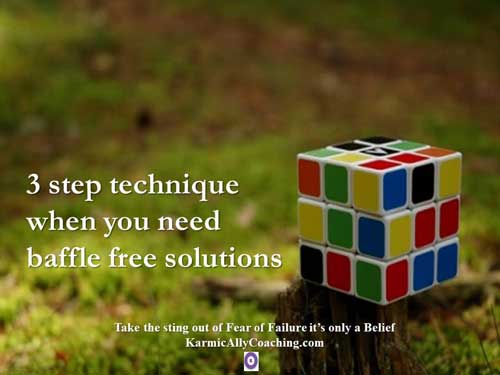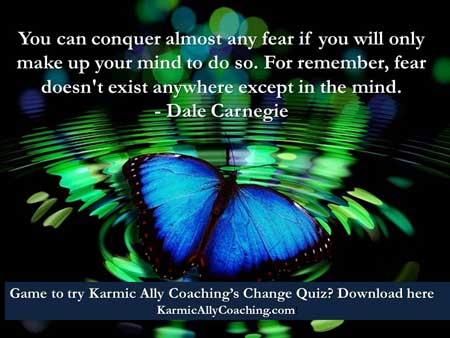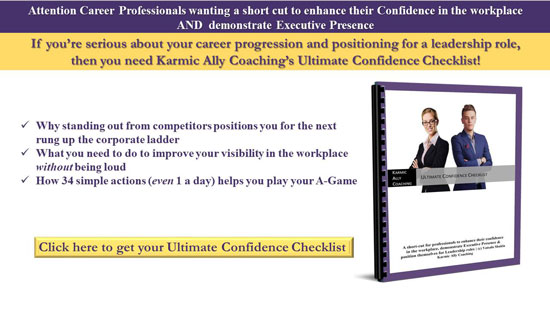This post has already been read 4076 times!

It was a most surreal venue to do a morale boosting counselling session on the fear of failure, but the Willis Carrier question caught my attention and I was hooked.
Flashback to a Friday night in Warsaw of 1995 and Marriot Hotel’s trendy, exclusive and yuppie Orpheus, night club where expats and the wealthy Polish hung out. It was one of 3 places to hang out if you wanted to see and be seen or show that you had arrived.
This was shortly after the disintegration of the USSR and Poland was no longer considered ‘near abroad’ in that part of the world. It was a time of interesting change and meeting of new cultures that required change on both sides.
A Group of single girlfriends were having a night out and the only male member of the Group was a visiting consultant at one of my friend’s office. He was at least twice our age and not much of a dancer, was counselling one of the girls who was pretty stressed out about a new and apparently difficult boss.
I was enjoying the music until my ears picked up a Dale Carnegie quote that I often used when things felt out of control.
In my post Negotiate to Win, I tell the story of how my parents inculcated a love for literature by making me read books from my father’s expansive library and then tested me on the book in order for me to earn extra pocket money.
Dale Carnegie’s How to Stop Worrying and Start Living was one of those books and I remember the famous tip about asking yourself, “What is the worst that can happen?”
Interested in the conversation, I saw the consultant apply the 3 step technique that helps when we’re anxious about problems and besieged by the limiting belief called Fear of Failure.
3 step technique when you need baffle free solutions

It’s easy and if you do it sincerely, I promise you that you will overcome the anxiety and the limiting belief that you might fail because failure becomes an option.
After that, things can only get better.
Step 1 – Ask yourself what’s the worst that could possibly happen. I call it the Chicken Licken Sky Falling step.
Step 2 – Prepare to accept the worst.
Step 3- Work out how to improve upon the worst, should it come to pass.
Need genuine inspiration? You’ll find it in Willis Carrier’s Story
If you haven’t read Dale Carnegie’s book, I strongly urge you to acquire a copy and read the interesting story in it about Willis Carrier, the founder of modern air-conditioning and Inventor of Dew-Point Control.
The anecdotal story shows how this technique helped him to find the solution to a major issue when he discovered that a new gas-cleaning service his employer Buffalo Forge Company provided wasn’t as effective as he’d hoped.
It was the realization that worrying about the situation was counter-productive that led to his discovering the 3 step technique.
First, he realized that the worst that could happen was that his company would have to remove the machinery that wasn’t working and lose the $20,000 they’d invested.
Next, he accepted that potential outcome. The company could qualify the loss as the cost of researching a new strategy.
Finally, he figured out how to improve the situation. If the company bought $5,000 worth of new equipment, they could resolve the issue.
Ultimately, that’s exactly what the company did, and they ended up making $15,000, because the additional equipment proved so effective.
![[W]hen we force ourselves to face the worst and accept it mentally, we then eliminate all these vague imaginings and put ourselves in a position in which we are able to concentrate on our problem. - Willis Carrier Willis Carrier quote on fear and solutions](https://karmicallycoaching.com/wp-content/uploads/2011/09/Willis-Carrier-fear-solution-quote-karmic-ally-coaching.jpg)
Be honest with yourself, how often have you procrastinated because you feared you might fail?
Or were scared that you would make a fool of yourself even though you knew what you had to do?
Have you ever stopped yourself from taking the right action thinking about what others would think?
Did the thought of change frighten you into inaction?
If you are thinking along those lines, then not only are you going to make failure a self-fulfilling prophecy but will deprive yourself of an opportunity to grow and learn.
The next time you have this fear which is stopping you, just ask yourself, what is the worst that can happen? If you think about it properly, then not much will happen. Or if there is a risk or downside, then consider the benefits against the risks before you act.
By the way, my friend summoned the courage to talk to her new boss about how she felt and things were better at work after that. It turned out to be a simple cultural communication one.
How do you overcome the resistance to take action when a limiting belief like the fear of failure freezes you?
Karmic Ally Coaching’s Fear Factor Resources
Confront and Banish your Fears and Weaknesses
My Top 5 Tools to Combat the Fear Bug
Secondary Gain – is your habit actually helping you?
Karmic Ally Coaching’s Ultimate Confidence Checklist





 I adhere to the Certified Coaches Alliance Code of Ethics and Standards. A copy is available on request.
I adhere to the Certified Coaches Alliance Code of Ethics and Standards. A copy is available on request.
 Let's Talk through the Connect Form:
Let's Talk through the Connect Form:
Interesting that I should read this today and have it explain my experience this morning. I was scheduled for a mammogram at a new location. I arrived on time and sat down waiting. When my name was called, I suddenly changed my mind and said I would call for a new appointment and left. It was only later that I realized I was very uncomfortable with the vibrations of the other women waiting. Then I realized from reading your post that I was becoming fearful because I was sensing their fear. I guess fear is more contagious than I thought. Will go back better prepared next time.
Empaths can pick up others feelings and even if one is not sensitive, if the vibrations are at a high level, even a normal person would sense it. I’m glad you realized what was happening and are going to go back better prepared for your appointment.
I agree that fear of failure, fear of success, any kind of fear doesn’t serve us. It’s usually related to fear of the unknown. To me that’s a strong one. You mentioned that fear can turn into inaction and again, I can relate to this one big time. My husband is the opposite and takes action right away. I am glad he has been a great role model when it comes to problem solving and fear. Great article.
I can see the Law of Balance in play here, Nathalie. It helps to have a husband providing the inspiration to overcome fear and take action to solve problems and I am sure that you are equally inspiring by being the voice of reason. The best way to overcome fear of action is to ask yourself what the real issue is and deal with that first. Then there can be no fear of failure!
Good points and resources. Thank you!!
You are most welcome Sue!
Number 1, ask yourself “what’s the worst thing that can happen” was a life-changer when I learned that in my one of my first art courses, Vatsala. So often the we fear as the worst, stops us dead in our tracks. And often those worst things, are over-exagerations of what would happen anyways. It’s great when we ask ourselves that and then dive in knowing what our ‘worst’ is. I really like your step 2 and 3, as then there is no excuse to step into that fear and hopefully be pleasantly surprised that we do not even have to call on steps 2 and 3. It always amazes me how we humans go to fear as our first response. Imagine all the amazing things people would be giving to the world, if they had the tools and ‘courage’ to face their fears and do it anyways!
I guess its the primal fight or flight instinct that kicks in when faced with a situation outside of one’s comfort zone, Beverley. Acknowledging the challenge and the possibility that the outcome might not be favorable takes the sting out of the situation and allows us to focus on what is doable. Thanks for sharing your valuable insights and perspective.
Fear was such an issue in my family when I was growing up I have a tendency to be rather dogged in the way I tackle my own fears. For example, I’ve always had a thing about heights, so a few years ago when I was told that the place where we were to gather flowers for the leis we were to make for a hula performance I wasn’t thrilled to learn it was near the top on a steep mountain and the only road up there was a single lane dirt road – no rails – terrifying for someone with height issues.
The first time I went up there I just parked my car at the side of the road and sat there for an hour before I mustered the courage to slowly crawl forward. My whole body was trembling as I tried not to look to the side where there was nothing but air. About a mile in there was a small turnaround and I took it and went back home. It took me 2 more tries before I could make it the whole way, but I did it.
It’s impossible to live life to the fullest and not experience fear on some level. It really is a matter of learning to face our fears and I couldn’t agree more with you about the value of reading Dale Carnegie’s book. Thanks for the inspiration Vatsala!
Fear can be a motivating factor if we know how to face it and get on with the task at hand like you did when it came to heights, Marquita. Wasn’t it a triumphant moment? The key differentiator between people who succeed and fail often comes down to their willingness to take the problem or limiting factor by the horn and take action. Thank you for sharing your experience with us.
Thanks, Vatsala. Fear of failure! Fear of success! So much fear to release! It doesn’t serve us, anyway. For me, the best strategy has been focussing on the journey, rather than the result, and to view the ups and downs of entrepreneurship as education, rather than tests.
Fear can take many forms, Reba. I remember as a child when we had exams and I used to get fearful, my parents told me that it was a sign of a good student – one who wanted to do their best and that put any fear to rest. I prefer the idea of focusing on the experience of the journey – it helps keep events and the mini adventures or mis-adventures in perspective. Thanks for adding to the discussion.